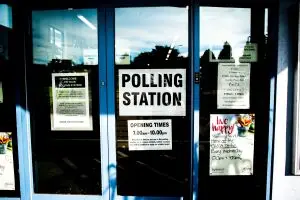This week, The Chancellor of the Exchequer, the Rt Hon Jeremy Hunt MP, delivered his 2023 Autumn Statement.
During his oral statement to the House of Commons, the Chancellor said the economy was ‘back on track’ but added that ‘the work is not done’. Hunt announced ‘110 measures to help grow the economy’. The Chancellor said these would ‘raise business investment, get more people into work, reduce inflation next year and increase GDP’.
The Chancellor confirmed the Government will use September’s inflation figure of 6.7 per cent to uprate benefits next year, not the lower 4.6 per cent October figure as had been suggested. Hunt committed to the pension triple lock meaning the new state pension will rise by 8.5 per cent from April 2024. The Chancellor also announced a cut in the main rate of National Insurance for employees from 12 per cent to 10 per cent, which will come into effect from 6 January.
Resource spending will increase by 1 per cent a year, as set out in the Spring Budget 2023, which equates to real-term public sector cuts. OBR growth forecasts are lower than in March 2023 and as a percentage of GDP, debt will rise for the next three years before falling in 2026-2027. Hunt set a new target to increase public sector productivity by at least 0.5 per cent a year. The Chancellor committed to faster timelines for planning applications and said he was making money available to attract investment into strategic manufacturing. The Chancellor announced he is making Full Expensing permanent meaning the UK has the lowest headline corporation tax rate in the G7 and the most generous capital allowances.
The Chancellor also announced:
- Changes to the Minimum Wage: The National Living Wage for individuals over the age of 23 will increase from £10.42 per hour to £11.44 per hour. Notably, those aged 21 to 22 will now be eligible for the National Living Wage for the first time. Furthermore, the National Minimum Wage for individuals aged 18 to 20 will rise from £7.49 to £8.60 per hour, and for under-18s, it will increase from £5.28 to £6.40 per hour.
- Business Tax: Self-employed individuals will see a reform in their taxes, with the abolition of “class 2” national insurance contributions that contribute to their state pension entitlements. This move is anticipated to reduce taxes for approximately 2 million people. Additionally, “class 4” contributions will be reduced by one percentage point. A business rates discount of £4.3 billion will also be extended to the hospitality, retail, and leisure sectors.
- Late payments: From April 2024, companies bidding for large Government contracts will have to demonstrate that they pay their invoices within 55 days, which will incrementally reduce to 30 days.
- Investment: An additional £4.5 billion will be invested in manufacturing in key sectors including automotive, aerospace, life sciences and green energy industries between 2025 and 2030, with approximately £1 million allocated to aerospace companies and businesses specializing in green technologies. The recommendations from the review of foreign direct investment into the UK, conducted by former business minister Lord Harrington, will be embraced. A new ‘investment zone’ will be established in Wrexham, Wales, with three others in England: in Greater Manchester, and the West and East Midlands.
- R&D Tax Credits: The R&D tax credit system will be reformed by merging the existing R&D Expenditure Credit (RDEC) and SME Schemes from April 2024. Under the new scheme, the credit for loss-making companies will be taxed at 19% rather than the corporation tax main rate of 25%. The R&D-intensive requirements will be reduced from 40% of the total spend on R&D to 30% of the total spend on R&D.
- Pensions: The Chancellor announced a consultation on giving people a legal right to require a new employer to pay into their existing pension if the employee prefers that.
BREVIA CONSULTING PROVIDES STRAIGHTFORWARD PUBLIC AFFAIRS AND PUBLIC RELATIONS SUPPORT TO BUSINESSES AND CHARITIES.
Discover how Brevia can help you and your organisation by contacting the Brevia Team on 020 7091 1650 or contact@brevia.co.uk




